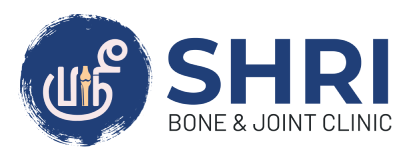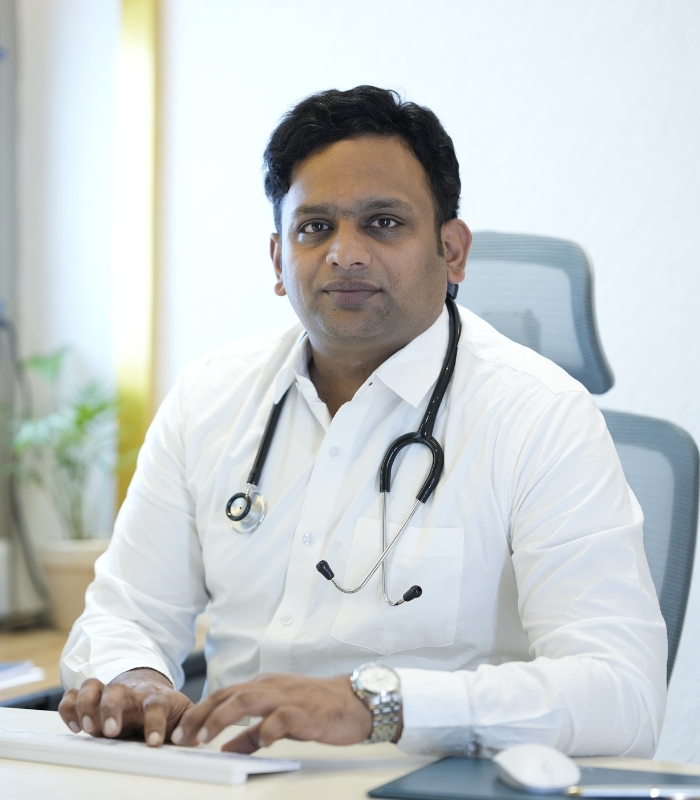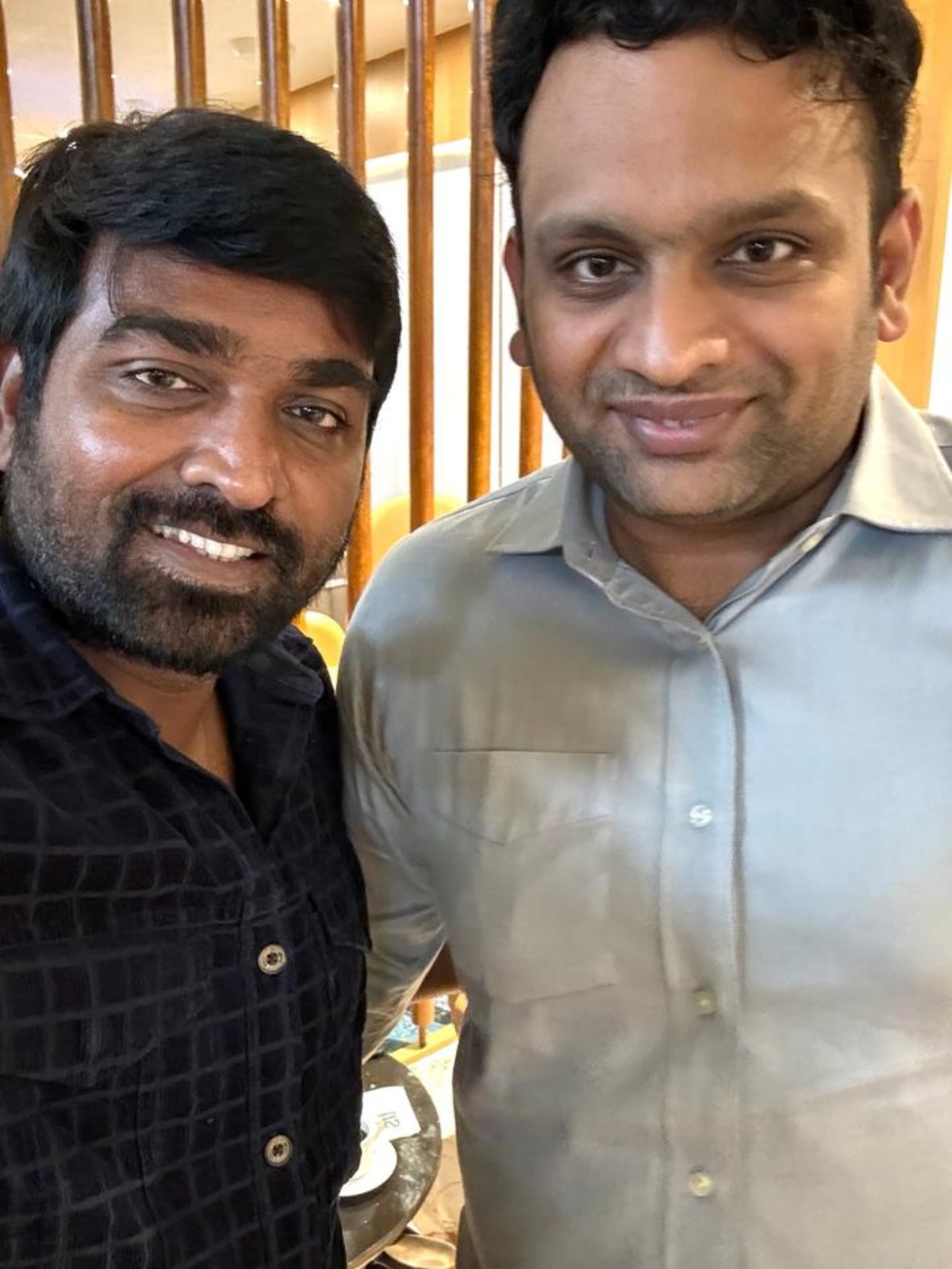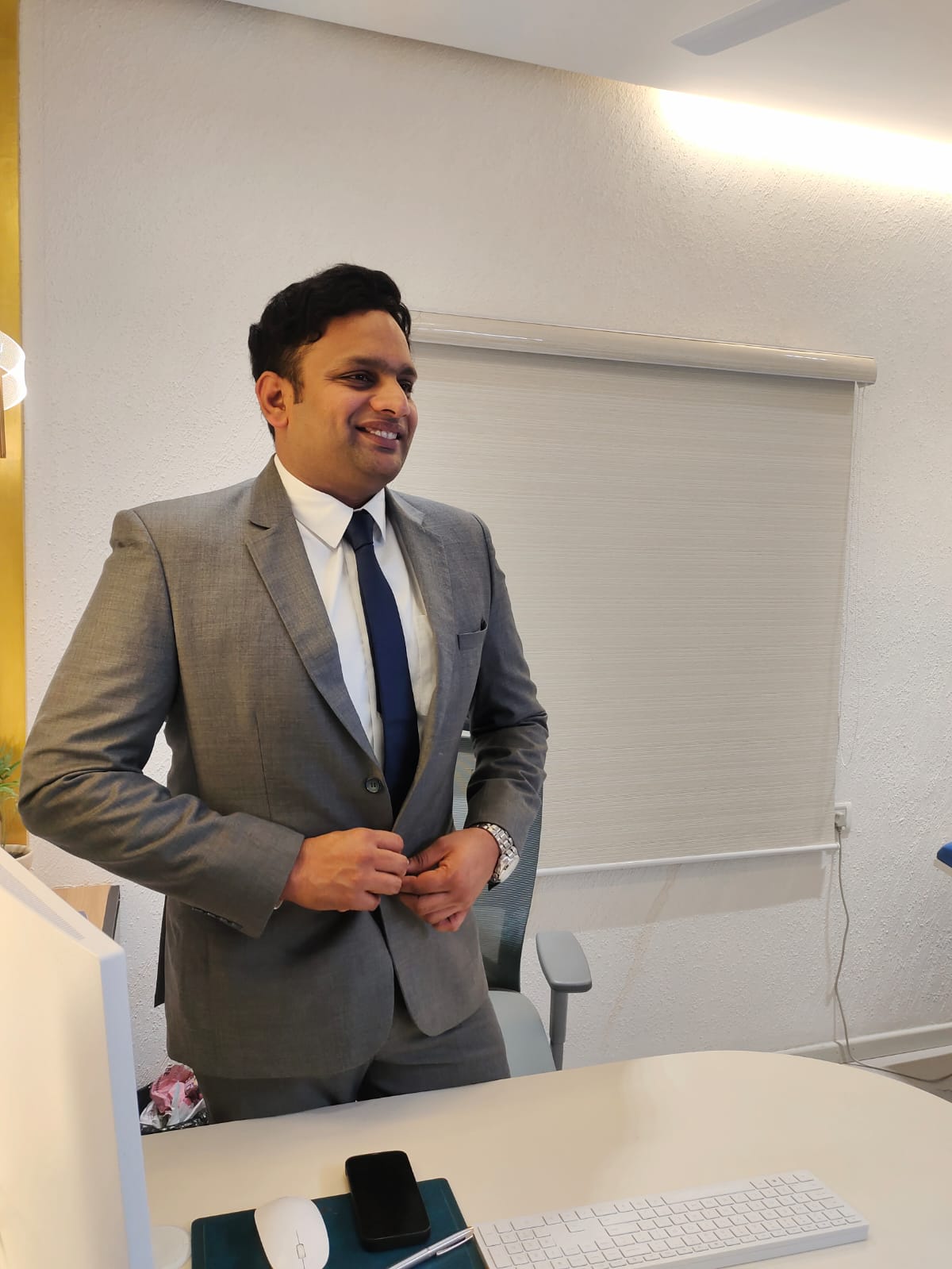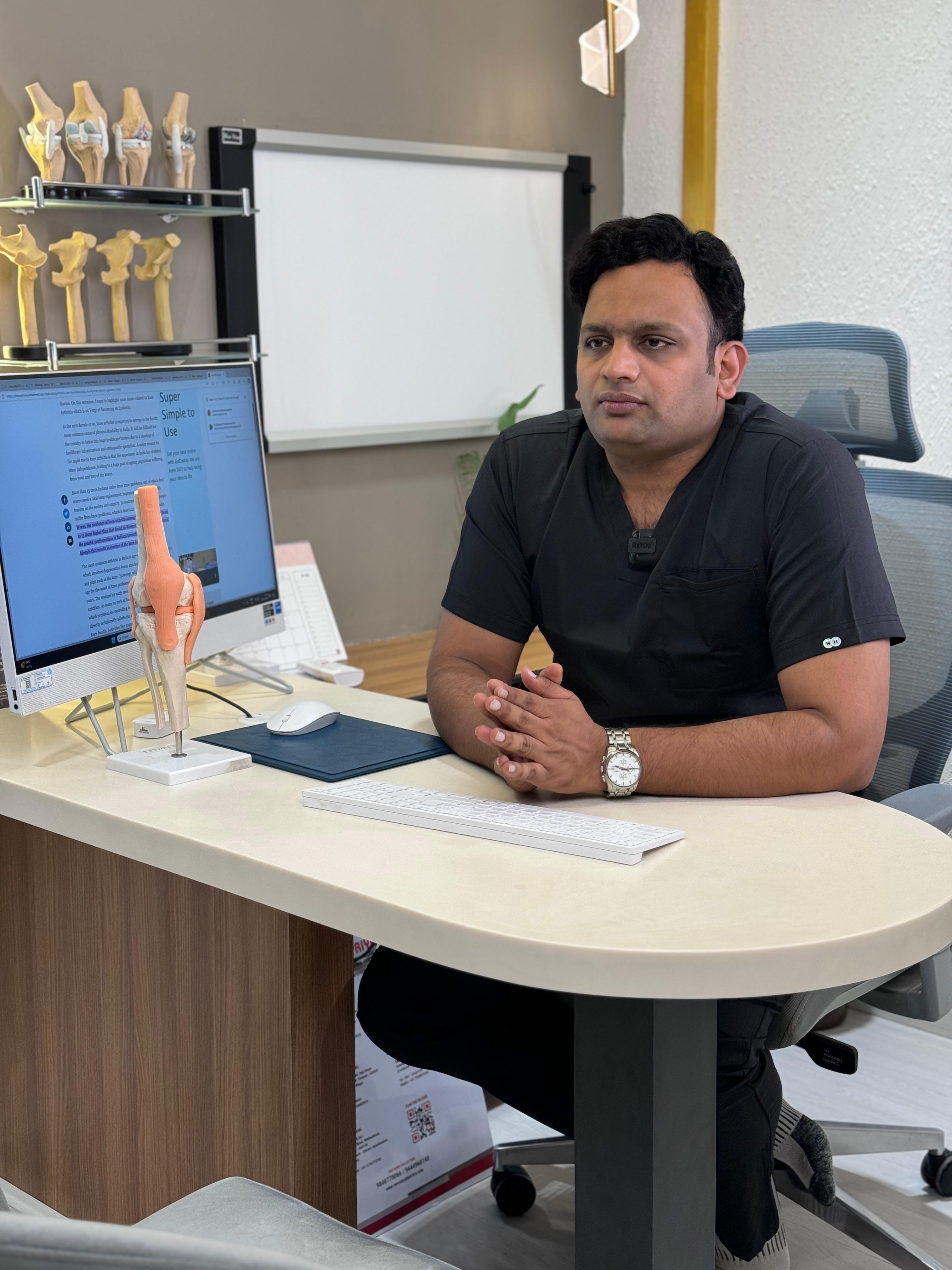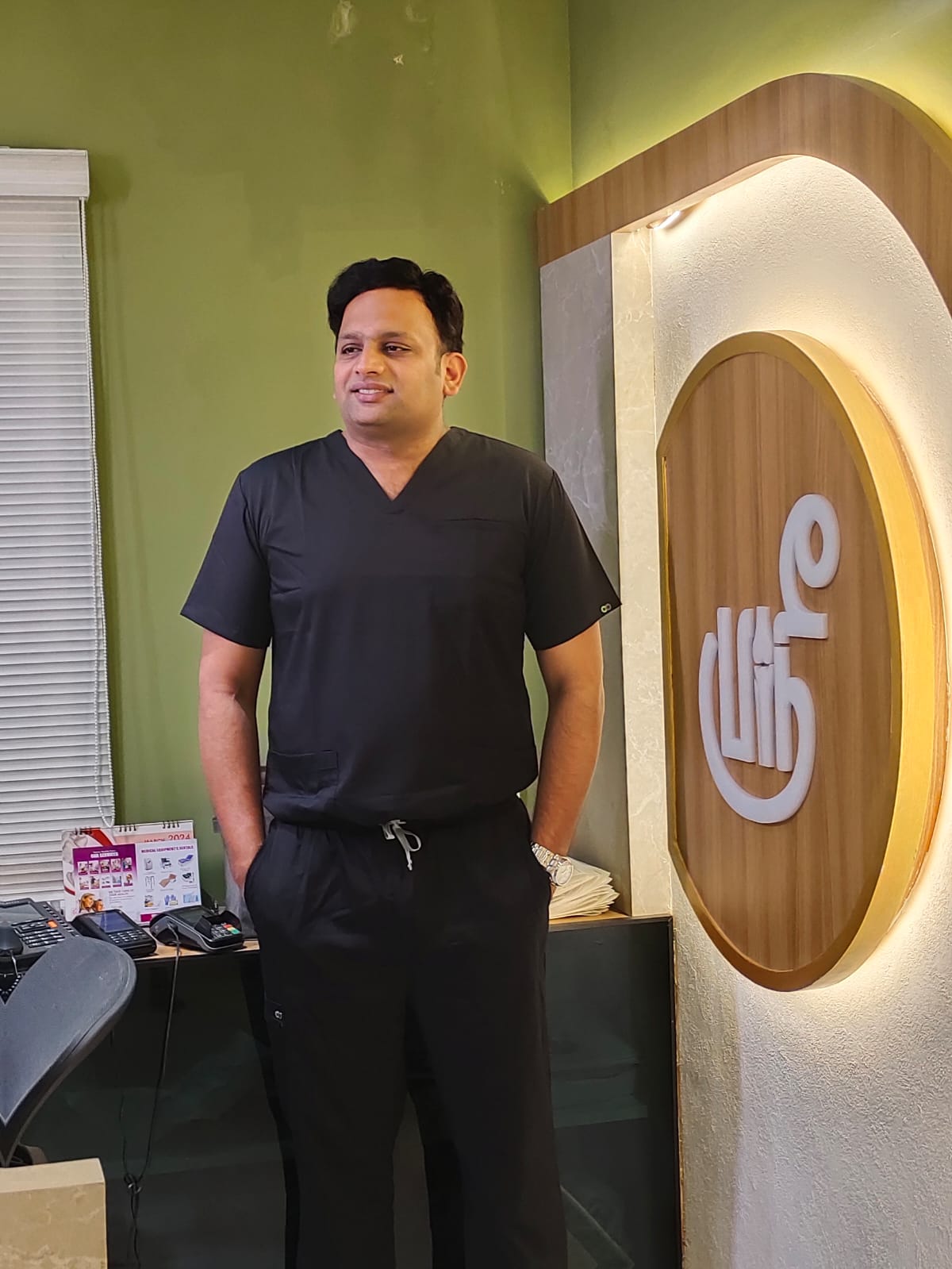Introduction to PRP Therapy
In PRP therapy, the concentrated platelets are injected into the knee joint to help repair damaged tissues, reduce inflammation and relieve pain. The treatment is often used for conditions such as Osteoarthritis, ligament injuries and tendonitis in the knee.
Platelet -rich plasma therapy is regenerative treatment that has gained popularity in recent years for various orthopedic conditions, including knee injuries. PRP therapy involves using the patient’s blood, which is processed to concentrate the platelets. Platelets are rich in growth factors that can stimulate the healing process in the body.
PRP knee therapy is considered a safe treatment option with minimal risk of adverse reactions since it uses the patient’s blood. However, the effectiveness of PRP therapy for knee conditions can vary from person to person, and more research is needed to fully understand its benefits and limitations.
It is often used in conjunction with other treatments, such as physical therapy, for optimal results.
Understanding Knee Arthritis
Knee Arthritis, also known as Osteoarthritis of the knee, is a common condition that occurs when the protective cartilage in the knee joint wears down over time. This can result in pain, stiffness, swelling and decreased range of motion in the knee.
PRP therapy is a treatment option used to manage knee arthritis. PRP contains a concentrated form of the patient’s platelets, rich in growth factors that can help stimulate the healing process and reduce inflammation in the joint.
When PRP is injected into the knee joint, the growth factors are believed to promote the regeneration of the damaged cartilage and improve the overall health of the joint. This can lead to reduced pain and improved function, potentially delaying the need for more invasive treatments such as knee replacement surgery.
PRP therapy for knee arthritis is typically performed as an outpatient procedure and may require multiple injections over some time to achieve the desired results. It is considered a safe treatment option with minimal risk of side effects, as it uses the patient’s blood.
While some studies have shown promising results for PRP therapy in treating knee arthritis, more research is needed to fully understand its effectiveness and determine the best candidates for this treatment. It is often recommended as part of a comprehensive treatment plan that may include medications, physical therapy, and lifestyle modifications to help manage the symptoms of knee arthritis.
Benefits of PRP Therapy for Knee Arthritis
- Pain relief
- Improved function
- Minimally invasive
- Natural healing
- Potential to deal with surgery
- Short recovery time
- Long-lasting effects
How PRP Therapy Works?
Blood Collection
A small amount of the patient’s blood is drawn, usually from the arm.
Centrifugation
The blood is placed in a centrifuge, a machine that spins at high speeds to separate the different components of blood. This process separates the platelets from other blood cells.
Platelet Concentration
The platelet-rich plasma (PRP) is extracted after centrifugation. PRP contains a higher concentration of platelets than normal blood.
Injection
The PRP is then injected into the affected area, such as the knee joint, in the case of knee arthritis. The PRP’s growth factors and other bioactive proteins help stimulate the body’s natural healing processes.
Healing Process
Once injected, the platelets release growth factors that promote tissue repair, reduce inflammation, and stimulate the growth of new, healthy tissue. This can help repair damaged cartilage and tissues in the knee joint, leading to pain relief and improved function.
Multiple Sessions
Depending on the severity of the condition, various PRP injections may be needed over some time to achieve the desired results. These injections are typically spaced out over weeks or months.
Effectiveness of PRP Therapy
The effectiveness of PRP therapy can vary depending on several factors, including specific conditions being treated, the severity of the condition and the individual patient’s response to the treatment.
For knee arthritis, some studies have suggested that PRP therapy can effectively reduce pain and improve function. A review of several studies published in the journal Arthritis Care & Research in 2007 found that PRP therapy was associated with significant improvements in pain and function compared to placebo or other treatments for knee osteoarthritis.
However, it is essential to note that not all studies have shown consistent results, and more research is needed to understand the full effectiveness of PRP therapy for knee arthritis. Additionally, individual’s responses to PRP therapy can vary, and some patients may experience more significant improvements than others.
While PRP therapy shows promise as a treatment for knee arthritis, its effectiveness may depend on various factors. It is best considered part of a comprehensive treatment plan tailored to the individual patient’s needs. Consulting with a healthcare provider is recommended to determine if PRP therapy is a suitable treatment option for a specific option.
Candidates for PRP Therapy
- Mild to moderate knee arthritis
- Failure of conservative treatment
- Relatively good overall health
- Realistic expectation
- Willingness to participate in rehabilitation
- Absence of specific medical condition
Procedure Details
- Blood Collection
- Centrifugation
- Preparation of PRP
- Injection
- post-injection care
- Follow-up
- Rehabilitation
Potential Risks and Side Effects
- Pain and discomfort
- Infection
- Nerve or blood vessel damage
- Allergic reaction
- Incomplete relief
- Calcification
- Disease transmission
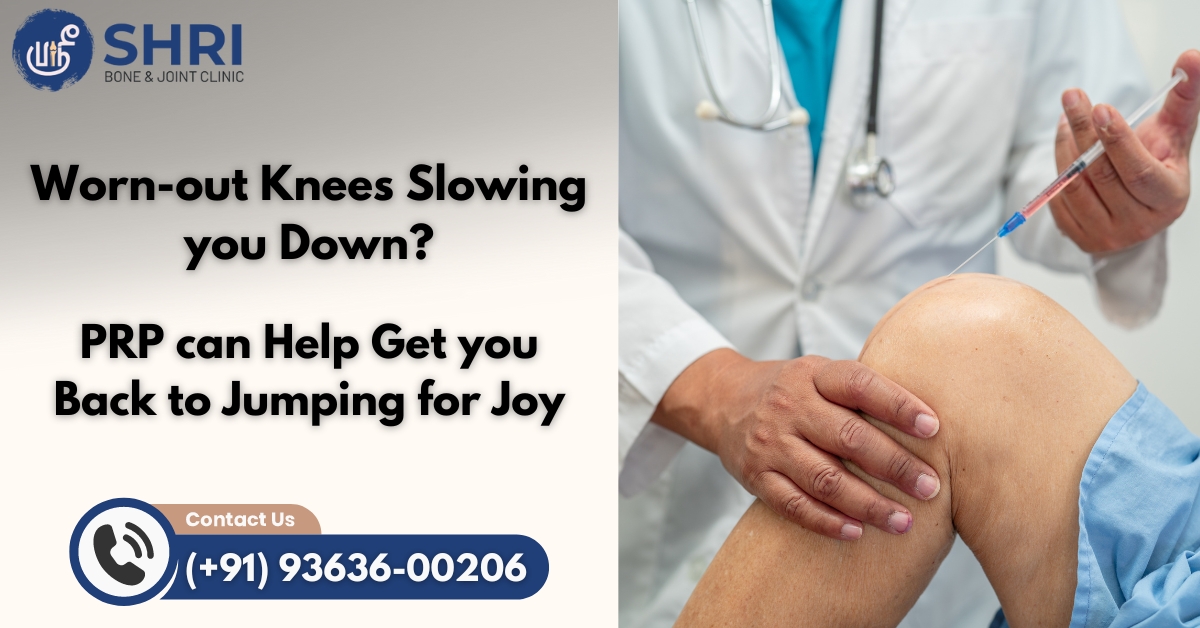
Recovery and Rehabilitation
Rest and Protect the Joint
After PRP therapy, it’s essential to rest the treated joint and avoid activities that put stress on it. Using crutches or a brace may be recommended to help protect the joint as it heals.
Ice
Applying ice to the treated area can help reduce swelling and pain. It’s generally recommended to apply ice for 15-20 minutes several times a day.
Pain Management
Over-the-counter pain medications such as acetaminophen or ibuprofen may be recommended to help manage pain and discomfort. Your healthcare provider may also prescribe pain medications if needed.
Physical Therapy
Physical therapy is often a key component of rehabilitation following PRP therapy. A physical therapist can help design a program of exercises to strengthen the muscles around the knee joint, improve flexibility, and restore function.
Gradual Return to Activities
As the knee heals, gradually reintroducing activities and exercises can help rebuild strength and function. It’s essential to listen to your body and not push through pain.
Follow-Up Visits
It’s essential to follow up with your healthcare provider as recommended to monitor your progress and determine if additional PRP injections or other treatments are needed.
Lifestyle Modifications
Making lifestyle changes such as maintaining a healthy weight, eating a balanced diet, and avoiding activities that stress the knee joint can help support the healing process and reduce the risk of future injuries.
Cost of PRP Therapy for Knee Arthritis in Chennai, India
The cost of the PRP therapy for knee arthritis in Chennai may differ depending on their place and environment. Generally, the price range of PRP therapy for knee arthritis is from Rs 5,000 to Rs 20,000 and more. Get the best PRP therapy for knee arthritis at an affordable price from Shri Bone & Joint Clinic in Chennai.
Why Choose Shri Bone & Joint Clinic for PRP Treatment for Knee Arthritis in Chennai, India?
Shri Bone & Joint Clinic offers Chennai’s best and most standard platelet-rich plasma therapy for knee pain at affordable medical fees. Here, we have the best and most experienced orthopedic specialists to provide the best solution to your problems.
We are available 24 hours a day, and you can reach us at any time. We also accepted all kinds of emergency walk-ins. Get immediate relief from us for all types of knee-related problems. Our aim is to provide the best PRP therapy at nominal medical charges in Chennai.
Best Doctor for PRP Injection Knee Arthritis in Chennai, India
Dr Shriram Krishnamoorthy is the best doctor for PRP injection Knee Arthritis in Chennai. He is a well experienced doctor and has more than ten years of experience in the orthopedic field. He is a national board-certified orthopedist.
Does PRP work for the knees?
PRP therapy may reduce knee pain and improve function for some with knee arthritis, but results vary.
How long does PRP last in the knee?
The effects of PRP therapy on the knee can last from several months to over a year, but individual results vary.
What is the cost of PRP treatment for knee pain in Chennai?
PRP treatment costs range for knee pain from Rs 5000 to Rs 20,000 and more in Chennai.
Is PRP a permanent fix?
PRP therapy is not a permanent fix for knee arthritis but can provide long-lasting relief for some individuals.
Why is PRP so expensive?
PRP is costly due to the specialized equipment, processing, and expertise required and its status as elective treatment.
Can I walk after a PRP injection in my knee?
Yes, you can usually walk after a PRP injection, but your healthcare provider may recommend limiting activity for a short time.
How many PRP treatments are needed for the knee?
The number of PRP treatments for the knee varies but often ranges from one to three injections spaced weeks apart.
Is PRP injection painful?
PRP injections can cause mild discomfort or pain at the injection site, which typically resolves quickly.
How much rest is needed after PRP?
Rest for a day or two after PRP therapy is often recommended, followed by a gradual return to normal activities.
Better Health Care is Our Mission
Phone
Shri Bone & Joint clinic
#1, 2nd Main Road
Nehru Nagar
Adyar
Chennai - 20.
Phone: 044 3549 0206
MGM Healthcare
No.72,
Nelson Manickam Road,
Collectorate Colony, Aminjikarai,
Chennai - 600029.
Phone: 044 4524 2424
